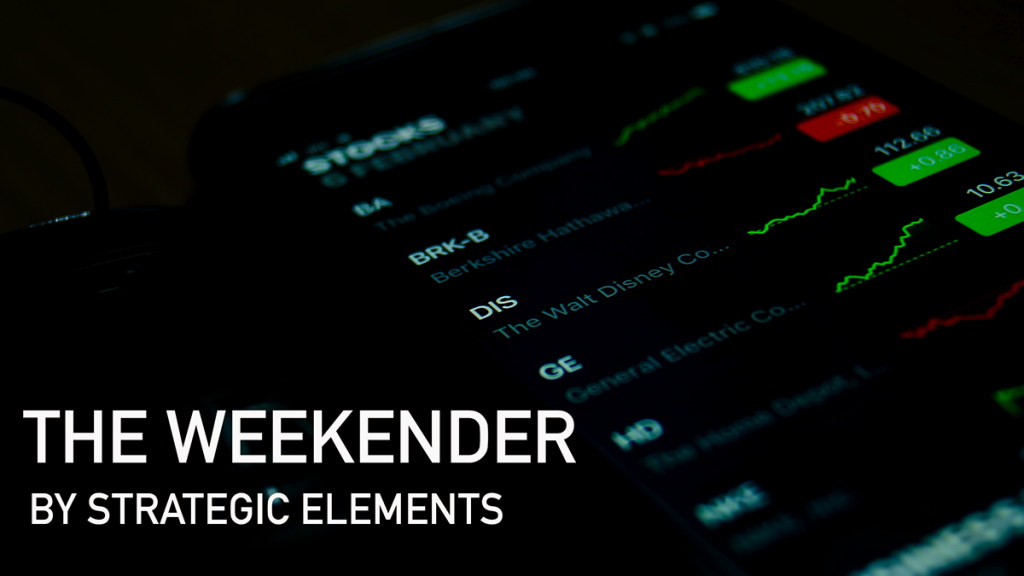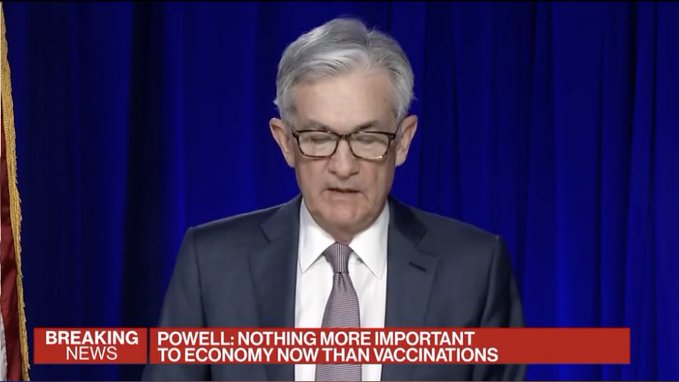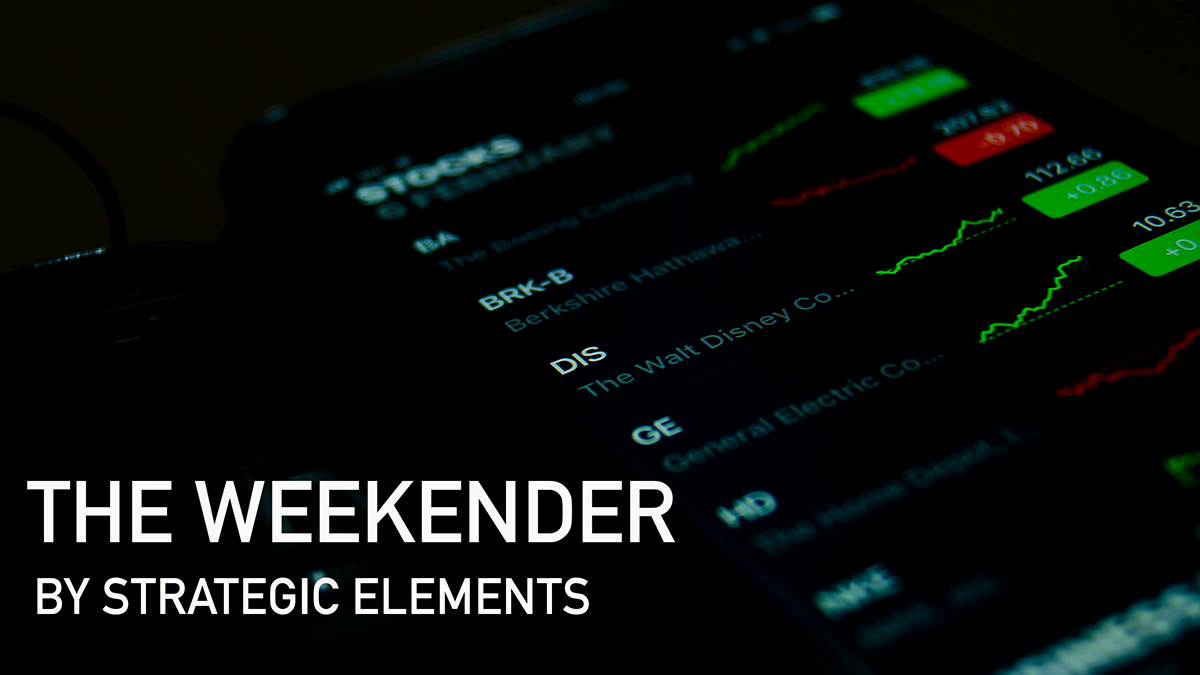
THE WEEKENDER
Big reads and big ideas shaping public policy, consumer trends, and cultural innovation.
January 29, 2021
Curation and commentary from the Team @ Strategic Elements
THE WEEK OF WALL STREET
Stocks. Shorts. Squeezes.
Happy Friday on this last weekend of the first month of the year. Never before did we think we’d see a legitimate battle between Reddit and Wall Street, but here we are, 2021.

THE BIG FIVE
How the wild game of squeezing shorts is rocking Wall Street. If you thought the first major gains in 2021’s market would be with companies not likely to succeed in a pandemic, you’d be called crazy – until now. The world of Wall Street has been rocked this week after a group of Redditors pulled off a short squeeze on hedge fund managers and investors, resulting in losses in the billions. What is “a short squeeze” and how did such a move even happen? If you’ve ever seen the Big Short, you’ve received a great crash course. Shorting stocks – or the practice of borrowing against a company to bet that they will fail – has been a Wall Street trend. Once the pandemic hit, hedge funds jumped on shorting companies like Gamestop, AMC Theatres, and Bed Bath & Beyond, as they assumed the stock price would tank. Instead, retail traders orchestrated an incredible rally to buy up stocks and refused to sell them, putting Wall Street in a “short squeeze” where they had no choice but to unload their position with massive losses. The result has caused a victory for the little guy, a “reckoning” on Wall Street, and the biggest uproar in many years. What does this mean for the market? Stock prices do typically even out, and this hasn’t impacted the entire market. But this organized movement has broken the dam, and expect to see significant efforts by various interests to transform how the market actually operates. Consider the game changed. NBC News
How this year’s Big Game will have big changes on the airwaves. After a shaky start amid an unproven strategy, the NFL managed to get through the entirety of its pandemic season. The sporting world can now look forward to Super Bowl 55 – the culmination of American culture, sport, and of course advertising. Watching a cultural experience can make us long for a return to normalcy, but the actions of the airwaves tell us otherwise. What was once considered a brand staple for many decades is changing this year: Budweiser, Coke, Audi, and Pepsi are all staying on the sidelines during this year’s game. The pandemic’s challenges are not just impacting bottom lines, but also brand storytelling. Some companies are shifting the focus, donating their ad costs to be instead used for vaccination awareness efforts. Now, there will still be plenty of ads to analyze during the game and the Super Bowl isn’t going anywhere. But what brands say or don’t say this year will be insightful for the future. It’s all about threading the needle, both on and off the field. Associated Press
Will Covid-19 shake up capitalism for the long haul? The pandemic has created two district trends simultaneously: the economy is demanding a rapid shift in the private sector, while big governments are intervening more than ever. What does this mean for capitalism – not just today, but far down the line? Shareholders are searching for a landing spot. To understand where the economy might land, we have to go back to understand the last time that capitalism was truly under fire. The global financial crisis, while mostly keeping the system intact, left a lasting impact that set a new precedent. Every major event brings a shift beneath our feet, even if it’s not noticeable right away. Today, Covid has (literally) forced the hand of government intervention, and with even higher economic discrepancies, we can begin to brace for more intervention in the future. In the end, the result may simply be that big business and big government can’t afford to live alone, but instead need a healthy relationship to get through. Wall Street Journal

What Biden’s actions on climate mean for the economic climate. WhilePresident Biden’s first week in office was all about undoing the Trump agenda, this week was more about his own. As expected, Biden lit a match underneath the energy sector and auto industry, signing a massive executive order that mobilized the federal government to enact provisions to lower carbon emissions and bring more clean energy investments. While this is a stark difference from the last administration, here’s what’s not new: clean energy is already charging ahead as a dominant force in the economy. The biggest impact of Biden’s order may be forcing the hand of sectors who were about to take the plunge and addressing the transition of fossil fuel industry workers. For example, the auto industry will likely accelerate to the rate of energy companies (starting with GM). Biden can ride the train of those who are already moving toward a decarbonized economy, but the train can’t reach its destination without successfully getting others to jump on board. Presidents set the course, but the economy is doing the heavy lifting. New York Times
Podcasts are booming – but there’s a revenue problem. The digital age, ongoing pandemic, and shift in news reporting has become the perfect recipe for the growth of podcasts. They are booming, and every major company, news organization, or personality that you follow is likely getting into the game. Reading a news story? Now you can take a deep dive behind the scenes. Learning an industry topic or watching a new show? Now you can engage in a watercooler conversation without being in the office. The platform is reaching a peak, but there’s also a revenue problem. The ecosystem of podcasts is still catching up with demand and advertising is in its infancy. The top 1% of podcasts are currently receiving 99% of downloads, so there are still hurdles to moving up the ladder. This doesn’t mean that you shouldn’t pursue such a venture, however. As is the case with emerging industries, sometimes you need to get your feet wet before the water settles. Your bets on podcasts are likely going to bring in good returns in the future. Axios
DATA POINTS
1,700%: The percentage gain of Gamestop’s stock this month, which went from around $19 in early January to nearly $350 at the close of trading Wednesday.
$34 billion: The combined amount that the six biggest U.S. airlines lost last year.
135,000: The number of more people who left California in 2020 than moved in, the third largest net migration loss for the state.
$23.6 billion: The amount that short sellers lost on Gamestop this month, according to financial data company S3 Partners.
3.5%: The percentage that the U.S. economy shrank in 2020, the biggest decline since 1946.
1,600 years: At its current price, how long it would take Tesla to make as much money as the stock market has invested in it.
Over one billion: What Apple says is the number of active iPhones right now across the world.
2035: The year that GM plans to go all-electric.
23.8%: The percentage that Senator Susan Collins has voted against her own party, the highest number of any current U.S. Senator, according to an Axios analysis.
TWEET
Fed Chair Jay Powell, moments ago:
“There is nothing more important to the economy now than people getting vaccinated.”

@davidgura
David Gura is a former reporter and anchor for MSNBC/NBC News.
—
Have a great weekend. See you next week.
Strategic Elements


